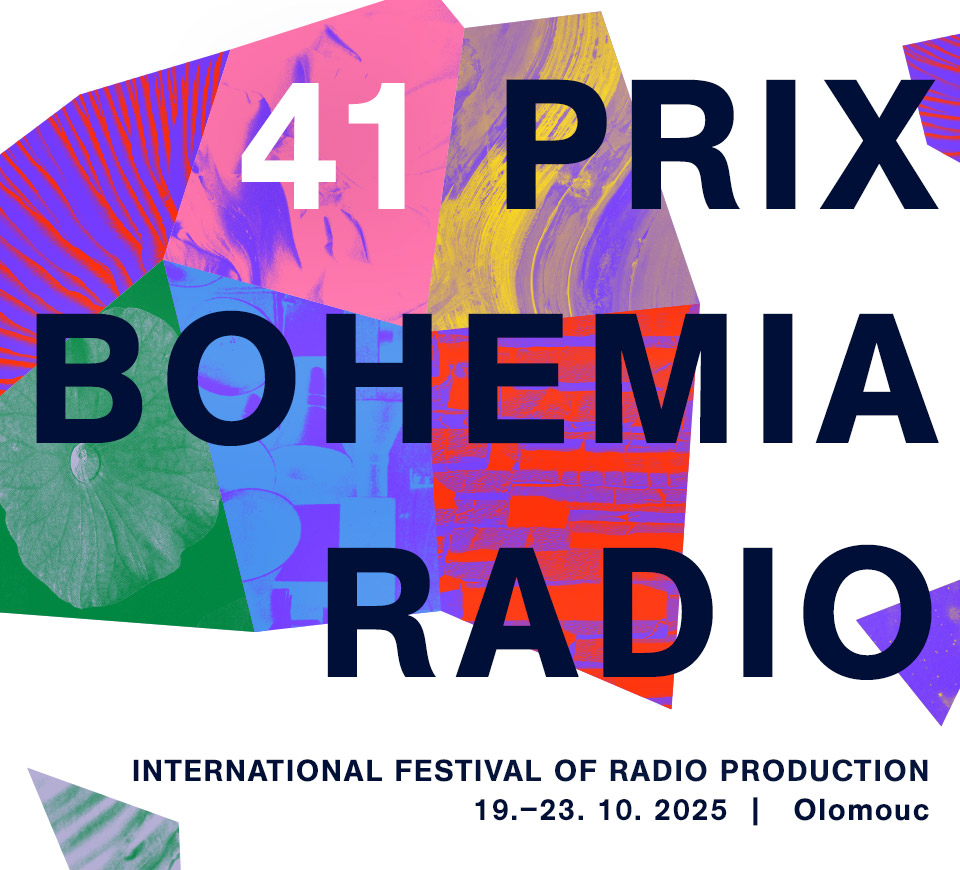Report category experiences festival premiere
The second day of the Prix Bohemia Radio festival was dominated by public playbacks of reports, for journalists the most exalted discipline. What made reports exceptional at this year’s festival was that they represented an international category for the first time, with the jury set to choose from 13 competition entries by authors from the Czech Republic, Germany, Poland, Slovakia and Hungary. Reports broadcast by public service stations in the last year were eligible for the competition.
Playback day at the Theatre Hall of Palacký University’s Arts Centre began shortly after 8:30 with Hi There, Neighbour by Roman Nuck from Germany, a piece that hinted that not all the entries would correspond to the report format in the jury’s eyes. Some of the other submissions also belonged more to the documentary or radio interview category.
However, the next piece, Calais, End of the Line by Czech Radio reporter Jan Šmíd, did fulfil traditional report criteria. In the jury’s words, Šmíd provided a broad perspective on the situation at the refugee camp in France’s Calais with his report. The jury members also highlighted his objective outlook, which he maintained by allowing space for refugees, volunteers and local residents to express their views. In a discussion, Šmíd himself stated that journalists ought not to lean toward any side: „We’re not activists but journalists,” he said.

From the sound perspective the jury were impressed by the report Sounds and Smells by Polish author Alicja Grembowicz (Polish Radio). „It’s as if that piece were made for radio treatment. It’s a celebration of radio,” said jury member Emily Thompson of Radio Free Europe/Radio Liberty in the discussion. Also taking part in the debate was Jakub Kamberský, a blind radio journalist who praised the piece’s handling and authenticity. “It was encouraging to hear that I’m not alone and that there are other people like me in the world,” he said.
The subject of refugees also came up in Marble and Children by Polish radio journalists Agnieszka Czyzewska-Jacquemet and Katarzyna Michalak. Their piece doesn’t focus on migrants from the Middle East but rather on refugees fleeing to Poland from the conflict in Chechnya. The jury was impressed above all by the approach to the material, which allowed the piece’s makers to capture the story of families at a train station at Brest in Belarus, from where they are headed to the European Union. Though it involved in the jury’s view emotive testimony, they looked positively on the fact the creators had succeeded in maintaining some distance from the subject matter. The jury and Czyzewska-Jacquemet, who was present, also discussed the report’s impact on Polish society.
For those in attendance at the listening session and the jury, apart from Hungarian member Erika Farkas, the most demanding playbacks were of two pieces in Hungarian by István Domokos, which were characterised by the speed of expression that distinguishes Hungarian. „I admit completely openly that for me it was complicated to evaluate the Hungarian reports. I didn’t have a problem with the rest, because I understood the remaining languages, including Polish. But Hungarian is a complicated language. Even though we had a transcription in English, in their case the emotions and comparison were genuinely more difficult,” said Klára Stejskalová, the Czech representative on the jury.

The treatment and themes of individual competition pieces led the jury to arrive during the discussion at the issue of the technical production of reports, the border between report and documentary and the duration of interviewees’ testimonies. The jury also reflected on who should interpret voices in foreign languages so as to preserve the emotion of the content. The piece Illegal Gambling in Brno by Czech Radio reporter Tomáš Jelen and the aforementioned Marble and Children also led the jury to weigh up the issue of the usage of hidden microphones. That method of recording is banned in Hungary, for instance.
Ahead of Thursday’s announcement of the report category winner, the student jury prize was presented immediately after the playback day. It went to the piece Marble and Children. „This award is very important to me, for the very reason that it was bestowed by young people. And this at a time when visual depictions of reality are paramount in the world of media,” said the present winning author Agnieszka Czyzewska-Jacquemet.

